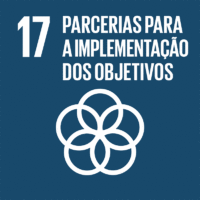Ciência_Iscte
Publicações
Descrição Detalhada da Publicação
Genuine participation in participant-centred research initiatives: the rhetoric and the potential reality
Título Revista
Journal of Community Genetics
Ano (publicação definitiva)
2018
Língua
Inglês
País
Alemanha
Mais Informação
Web of Science®
Scopus
Google Scholar
Esta publicação não está indexada no Overton
Abstract/Resumo
The introduction of Web 2.0 technology, along with a population increasingly proficient in Information and Communications Technology (ICT), coupled with the rapid advancements in genetic testing methods, has seen an increase in the presence of participant-centred research initiatives. Such initiatives, aided by the centrality of ICT interconnections, and the ethos they propound seem to further embody the ideal of increasing the participatory nature of research, beyond what might be possible in non-ICT contexts alone. However, the majority of such research seems to actualise a much narrower definition of ‘participation’—where it is merely the case that such research initiatives have increased contact with participants through ICT but are otherwise non-participatory in any important normative sense. Furthermore, the rhetoric of participant-centred initiatives tends to inflate this minimalist form of participation into something that it is not, i.e. something genuinely participatory, with greater connections with both the ICT-facilitated political contexts and the largely non-ICT participatory initiatives that have expanded in contemporary health and research contexts. In this paper, we highlight that genuine (ICT-based) ‘participation’ should enable a reasonable minimum threshold of participatory engagement through, at least, three central participatory elements: educative, sense of being involved and degree of control. While we agree with criticisms that, at present, genuine participation seems more rhetoric than reality, we believe that there is clear potential for a greater ICT-facilitated participatory engagement on all three participatory elements. We outline some practical steps such initiatives could take to further develop these elements and thereby their level of ICT-facilitated participatory engagement.
Agradecimentos/Acknowledgements
--
Palavras-chave
Participant-centred research,ICT,Participatory engagement,Web 2.0
Classificação Fields of Science and Technology
- Medicina Clínica - Ciências Médicas
- Ciências da Saúde - Ciências Médicas
Registos de financiamentos
| Referência de financiamento | Entidade Financiadora |
|---|---|
| COST Action IS10303 CHIP ME | União Europeia |
| UID/SOC/03126/2013 | Fundação para a Ciência e a Tecnologia |
Contribuições para os Objetivos do Desenvolvimento Sustentável das Nações Unidas
Com o objetivo de aumentar a investigação direcionada para o cumprimento dos Objetivos do Desenvolvimento Sustentável para 2030 das Nações Unidas, é disponibilizada no Ciência_Iscte a possibilidade de associação, quando aplicável, dos artigos científicos aos Objetivos do Desenvolvimento Sustentável. Estes são os Objetivos do Desenvolvimento Sustentável identificados pelo(s) autor(es) para esta publicação. Para uma informação detalhada dos Objetivos do Desenvolvimento Sustentável, clique aqui.

 English
English




